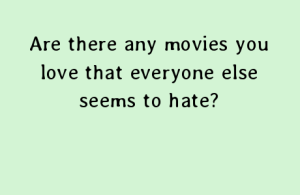
Film, like all art, is a rather subjective experience. While there are some things that most people can agree on that makes good or bad art, no two people are going to get the same experience out of a work of art. Some people like sappy romantic comedies or cheesy action movies, while others can't stand them. Who is really right or wrong in that case?
I like to think of it as a film presenting itself in all of its glory and humility and then lets the audience decide for themselves. There is no right way to look at a movie, which is why there are so many varying opinions on the same films.
Which is why I offer this continuation of the films I hate but everyone else loves. These are the movies that either make my blood boil in frustration, bore me to sleep or are just poorly made.
You could argue that many of these movies are just being deep or have something important to say that I just don't get it. Fair enough, but I tend to keep the intellectual part of the film separate from what makes the film enjoyable to watch. Just because a film is sophisticated or has a lot to say does not mean that it is fun to watch. Having something smart to say is not a substitute for telling a good old-fashion story.
But hey, I'm rambling at this point. Let's start with one of my more despised ones:
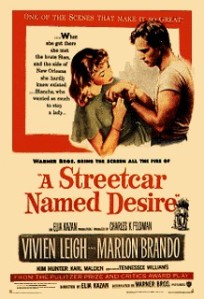
"A Streetcar Names Desire" (1951)
This is another film that puts me to sleep. It's about an aging stage performer who goes to see her sister in New Orleans but spends more time talking about how her life sucks now and that life was better back in the old days and blah blah. This is nothing exciting and captivating. The performances are stiff and wooden due to the characters being so absorbed in the dialogue.
I can tell that this was either based off of a play or drew inspiration from one. But when the characters keep repeating the same sentiments again and again, the film stops being enjoyable and becomes a chore to watch.
The only redeemable thing about the film is Marlon Brando's performance. Because, it's freaking Marlon Brando. He is one of the greatest actors ever and probably the best method actor of all time. He could make watching paint dry exciting and still probably more enjoyable than this film.
Overall, "A Streetcar Named Desire" is far too wordy, poorly paced and rarely lets the actions of its characters speak for itself. Outside of Brando, nothing worth watching here.
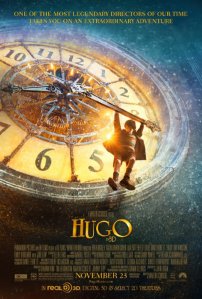
"Hugo" (2011)
A more recent entry on this list, I felt that "Hugo" was mediocre at best. It had many problems with plot and pacing, but what I found most upsetting was its presentation. The main point of "Hugo" was that cinema, all forms of cinema, should be preserved and honored as a gateway into the past and the work of countless filmmakers.
The film does this by attempting to pay tribute to the films of the early 1900s and 1910s. But where it messes this up is how modern, sleek, stylish and new the rest of the film looks. There is a ton of computer generated images, a modern-day score to fit with Paris and far too many vibrant colors.
"Hugo" wants to be one with the silent era of old, but it does so by being incredibly technological and advanced. This version of Paris feels like it is inside of a snow globe. Prestige, untouched and forever encased in a protective bubble, never to be touched by the outside world.
Shouldn't a film that attempts to pay tribute to older films feel like an old movie? "The Artist" was a great example of that. It honors silent films and feels like it takes place in Hollywood during the 1920s. The setting, the music, the actions of the characters all match the era. I feel that "Hugo"'s does not.
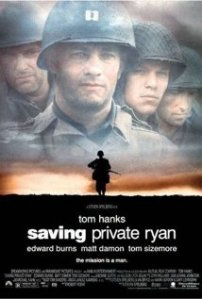
"Saving Private Ryan" (1998)
I love the opening battle scene. I love Tom Hanks. That's about it.
The movie is good for about the first Forty-five minutes, but once the group sets down the path to find Private Ryan, it loses a lot of its charm. A similar predicament happens with "Full Metal Jacket" with the opening in boot camp being far better than when the troops actually arrive in Vietnam.
However, "Full Metal Jacket" fixes that problem by offering up a contrasting point to the boot camp scenes. Boot camp is clean, rough and makes you lose your humanity. Vietnam is filthy, sometimes easy-going, gives you room to breath and requires you to stay human or else you will die.
"Saving Private Ryan" has little to nothing to offer once Tom Hanks and crew start down that path. The other soldiers are un-memorable, there are lots of unnecessary padding and it is long and drawn out. At some point you just want to get up and yell, "Will you get to Private Ryan already?"
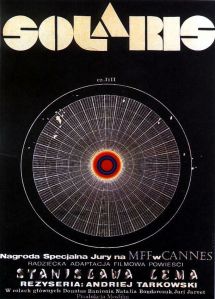
"Solaris" (1978)
I have not seen many Russian movies, but I can honestly say that aside from "Koyannaqatsi" they have all made me fall asleep.
I don't know what it is, but the director of "Solaris," Andrei Tarkovsky, knows exactly how to make me tired. Well okay, I do know what it is: Nothing happens in his movies. Tarkovsky's films are usually well over two and a half hours long, and all that ever happens in that amount of time is people looking at other things and questioning what it all means.
This comes back to the "being intellectual" part I mentioned earlier. This film thinks that it is smart and that it has something interesting to say. Some might find its points fascinating, but what would be the point in talking about them? What's the point? In fact, that is my biggest grip with Tarkovsky's work: He has no point. No clear statement that he'd like to discuss or a way of going about doing that. He just does whatever he feels like and expects people to think that's artsy.
I don't think that's artsy. That's just being lazy.
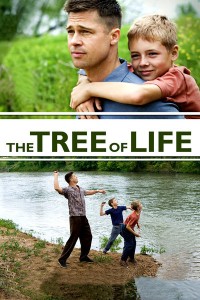
"Tree Of Life" (2011)
This one falls into the same class as "Solaris." Far too much style over substance and drops story and pacing in favor of emotional impact and its "message."
I understand the appeal of this kind of filmmaking. The kind without any sort of narrative structure and leaves a lot of itself up to interpretation. It's the same reason the films of David Lynch and Ingmar Bergman are worth analyzing and discussing. But the problem is that they're only worth analyzing. They're like a science project that needs to be studying, dissected and written about so that others may understand.
To me, that's not worth pursuing. Love for a film should come almost natural. Some first spark that ignites inside of you that makes you want to watch more and see where it'll go. Charlie Chaplin once said that we think too much and feel too little. That we keep using our brains when we should be using our hearts to guide us. It shouldn't take multiple viewings and a detail scientific thesis to make you love a movie. And if it does, then you and the movie are trying way too hard.
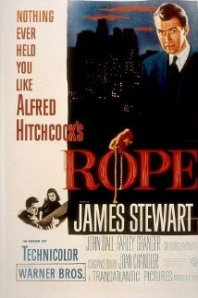
"Rope" (1948)
GASP! An Alfred Hitchcock film that I don't like. Burn the witch!
Let me explain. While I feel that Alfred Hitchock is one of the greatest filmmaking minds of all time, I will be the first to admit that I don't all of his work is that great. There are a couple of his films that don't sit well with me.
"Rope" is one such film. I will admit that the presentation of making it seem like the movie is one continuous shot is a nice touch, and James Stewart gives a wonderfully captivating performance (as usual), but I find no suspense or thrills in this film, which is a staple of all Hitchcock movies.
The suspense is supposed to come from the question: Will the murderers get caught? And I immediately know the answer to the question: It is an Alfred Hitchcock film, the bad guys always get caught. They're not really that dangerous or psychotic, they just wanted to know what it felt like to murder someone.
A better question for this film would have been "Did these two actually murder someone?" This would have been a simple thing to fix, simply by removing the murder from the beginning of the film. Then we spend the next hour and a half figuring out if there really is something underneath that chest and if these two have committed a crime that they seem proud of.
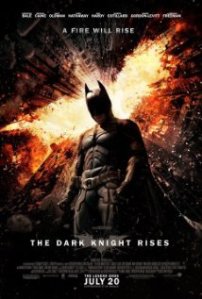
"The Dark Knight Rises" (2012)
I will be the first to admit that I actually liked this film when I first saw it. That it was a nice conclusion to Chris Nolan's Batman Trilogy, with wonderful acting, action that is heightened from the other two films and serves as a wonderful conclusion to the trilogy. In fact, it gets even better when you look at it as a Bruce Wayne movie, rather than one about Batman.
But then I started to think more about some of the finer points of the film. Like how Bane was played up as this ultimate wall of muscle and would stop at nothing to get his way, only for him to be someone's puppet and got stuck in the friend zone. Or how Batman gets his back broken and can now hardly walk, but all he needed was someone to punch him in the back again and pull him up on a rope. Or that Batman gets trapped in this prison that no one has ever escaped from, except for this little girl who made it out by not wearing a rope to hold her down.
And then I start to think, what was it that I liked about this movie anyway?
"The Dark Knight Rises" is a big mess. Far too much going on, way too many flaws and plot holes in the screenplay (How did Bruce Wayne escape from the middle of no where, fly back into Gotham when the area is supposed to be blocked off to everyone from the outside and still have time to stop the atomic bomb? And don't say BECAUSE HE'S BATMAN!) and a film that thinks way too highly of itself.
The more you think about this movie, the more you'll end up hating it.

"Vertigo" (1958)
Let me make this clear: I don't really hate "Vertigo." I like "Vertigo."
I think it has many interesting ideas, is quite suspenseful, has a beautiful score, cinematography and atmosphere and is at its best when James Stewart is merely observing Kim Novak without her realizing it, as she observes many forms of art. When the film focuses on those aspects, "Vertigo" is wonderful.
But it is when the film focuses on things like story and character that it begins to fall apart. For one, James Stewart's character is extremely unlikable. He treats everyone around him like filth to be thrown away when he is done with them and has no regard for anyone other than himself and his career. This kind of character might have worked in the hands of a different actor, but when you give it to Jimmy Stewart, the most likable and kind-hearted soul in filmmaking, it does not feel right. By the end of the film, I feel dirty.
Also, the plot of "Vertigo" is silly. I won't spoil it for those who haven't seen it, because this really is a film that everyone needs to see, but let's just say that the villain has created the most elaborate plan ever that has way too many variables and calculations that something could easily go wrong, and all to carry out something that is hardly even addressed in the film. By the end when I realized just what was going on, I couldn't help by chuckle at how absurd and ridiculous that plot of this film was.
These elements on their own wouldn't really make the film all that bad, but what really sells it for me is that Sight & Sound Magazine recently said that "Vertigo" is now the greatest film ever made. It passed even "Citizen Kane," "The Wizard Of Oz," "Singin' In The Rain" and "2001: A Space Odyssey" for being the best movie to ever hit theaters.
All I can say to that is...really? Of all the films in Hitchcock's massive library, you choose the one with the laughable plot and unlikable protagonist as not only the best of the bunch, but also the greatest film ever? I can think of at least six other Hitchcock films that I would consider better than "Vertigo," including "Rear Window," "Psycho," "North By Northwest," "Strangers On A Train," "Shadow Of A Doubt" and "Rebecca."
But as I said, I enjoy "Vertigo." It's just that there are several other works by Hitchcock that I'd prefer to watch and I certainly wouldn't call it the greatest film ever made.

No comments:
Post a Comment